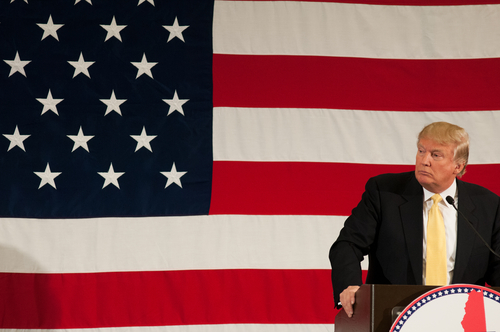
In a significant development that has captured the attention of legal observers and supporters of former President Donald Trump, Fulton County Superior Court Judge Scott McAfee has taken a decisive step by ordering an immediate review of Harrison Floyd's appeal. Floyd, a prominent figure associated with Black Voices for Trump, finds himself entangled in a RICO case closely tied to election-related charges. This move by Judge McAfee not only underscores the complexities inherent in the legal proceedings but also raises critical questions about the boundaries of prosecutorial power.
On March 28th, 2024, it was reported that Judge McAfee mandated a swift reassessment of the appeal lodged by Floyd, who faces serious allegations including solicitation of false statements, witness tampering, and racketeering. These charges are deeply intertwined with an investigation into election misconduct, a matter that has been a focal point of contention and debate across the political spectrum.
"This is highly significant. It means the defense is permitted to apply to Georgia Appeals for pretrial review of the Judge's order refusing to dismiss the case or disqualify Fanni Willis. The appellate review will lead to the case being dismissed and the DA being disqualified." pic.twitter.com/Or8AhZpv4Z
— AmericanTyranny (@NONbiasedly) March 20, 2024
The crux of Floyd's defense hinges on a procedural argument that District Attorney Fani Willis overstepped her jurisdiction. According to Floyd's legal team, Willis pursued an election-related indictment against their client without a crucial referral from the State Election Board. This procedural oversight, they argue, invalidates the authority under which Willis operated, casting a shadow over the legitimacy of the charges brought against Floyd.
Judge McAfee's decision to grant a Certificate of Immediate Review is not merely a procedural formality; it represents a pivotal moment in the ongoing legal saga surrounding the Trump RICO case. By allowing Floyd to seek an appellate hearing in Georgia, McAfee has opened the door to a thorough examination of the procedural and jurisdictional challenges at play. This move signals a willingness to scrutinize the actions of DA Willis and her office, potentially setting the stage for a reevaluation of the charges against Floyd and, by extension, other co-defendants in the case.
Fanni Willis is as corrupt as they come and she thinks she’s a hero. pic.twitter.com/elLs5pmh1X
— T (@Rifleman4WVU) March 24, 2024
Critics of DA Willis have long voiced concerns over what they perceive as an overreach of prosecutorial power, particularly in cases with significant political implications. The immediate review ordered by Judge McAfee serves as a testament to the judicial system's checks and balances, ensuring that even high-profile prosecutions are subject to rigorous oversight and adherence to legal standards.
As the appeal process unfolds, all eyes will be on the Georgia Court of Appeals, where Floyd's procedural motion to dismiss the case will be considered. This next phase of legal proceedings is not just about the fate of one individual; it is a litmus test for the integrity of the judicial process in politically charged cases. It underscores the importance of maintaining a clear separation between legal authority and political motivations, especially in matters as consequential as election-related indictments.
The broader implications of Judge McAfee's decision cannot be overstated. For supporters of former President Trump and advocates for fair legal processes, this development is a beacon of hope. It reaffirms the principle that no individual, regardless of their position or political affiliation, is above the law. At the same time, it serves as a reminder that the law must be applied evenly and justly, free from political bias or overreach.
As the legal battle continues, the conservative community remains vigilant, watching closely as the principles of justice and fairness are tested in the courts. The outcome of Floyd's appeal, and the broader Trump RICO case, will undoubtedly have lasting ramifications for the American legal and political landscape.












